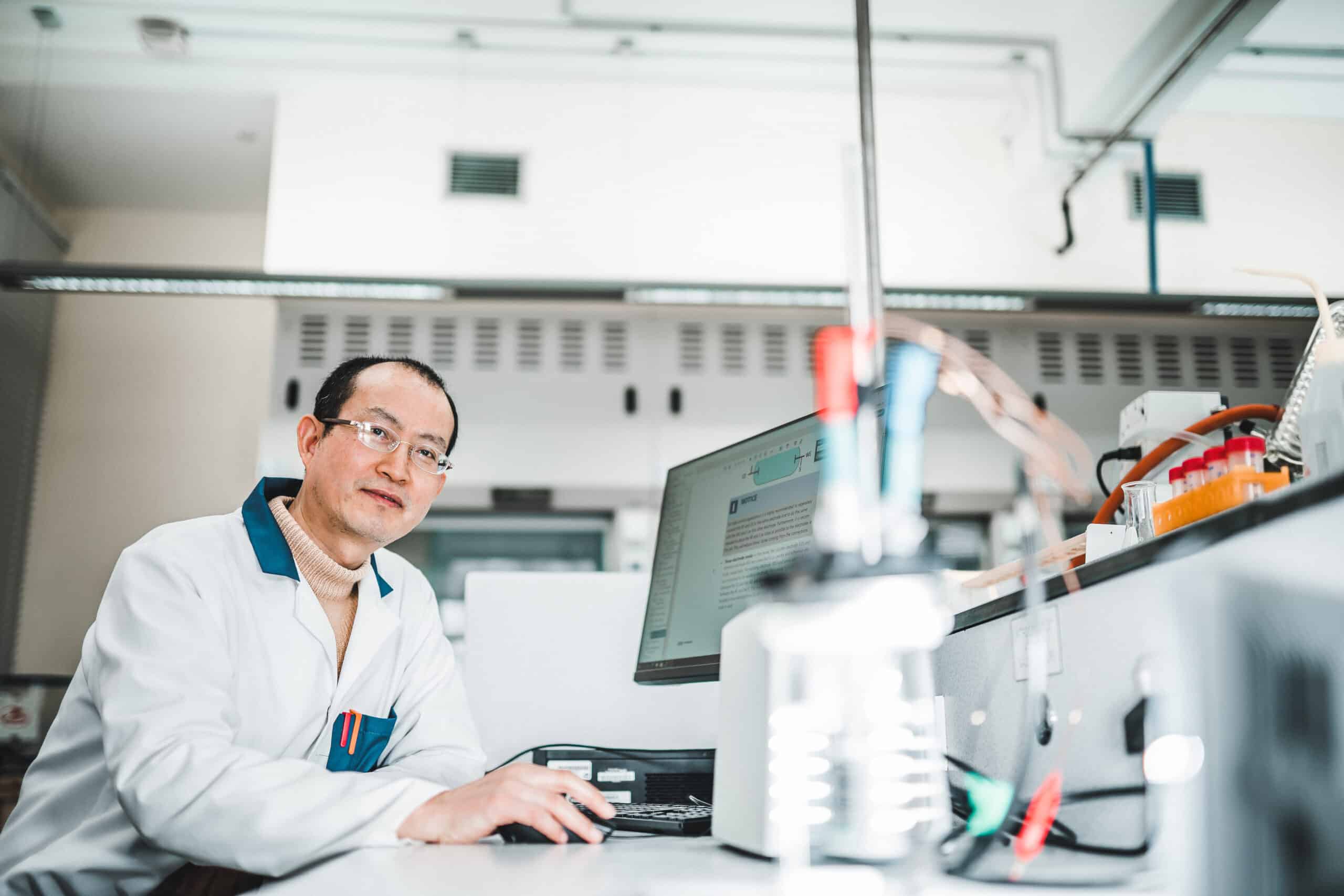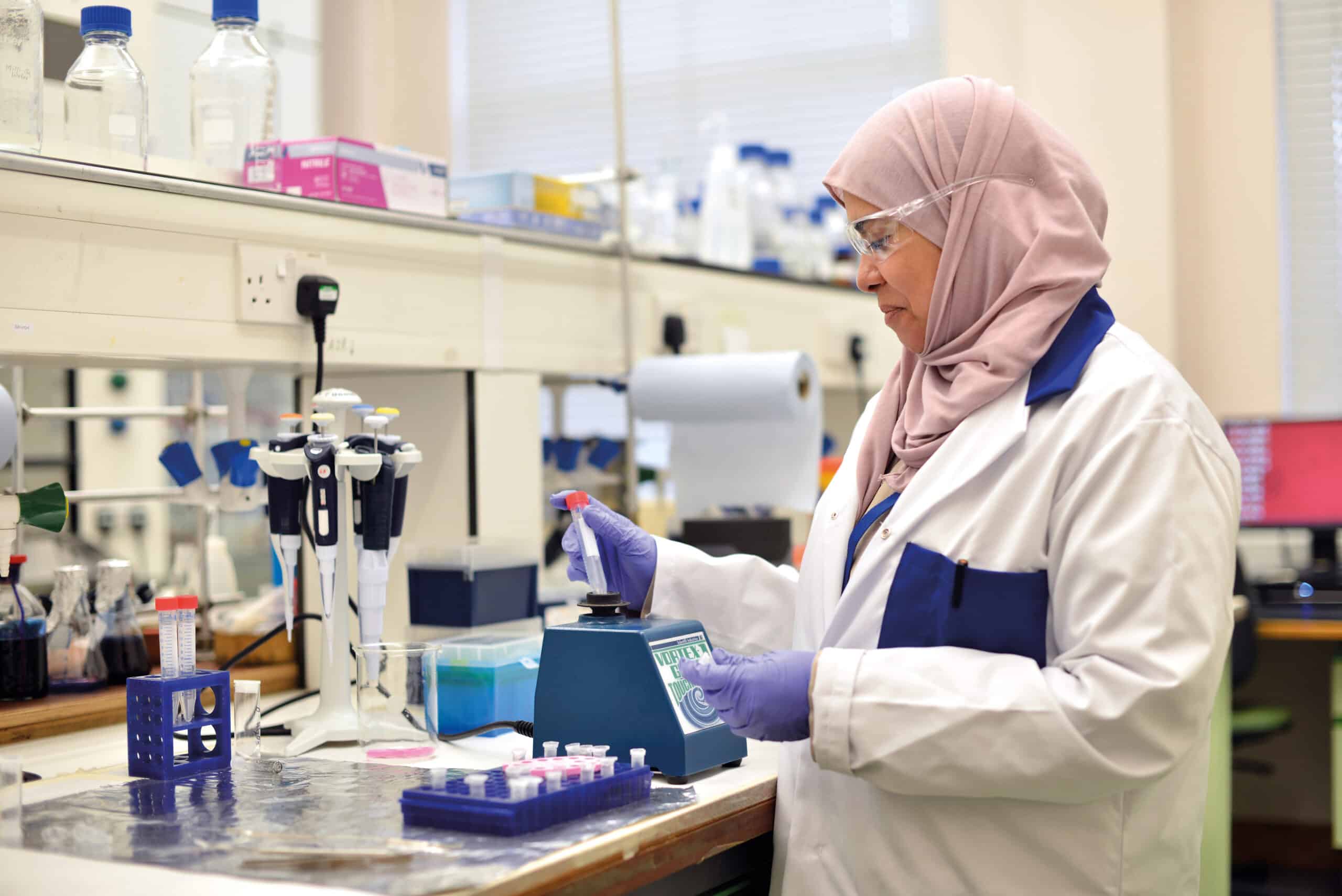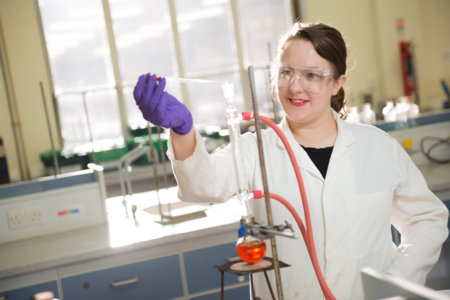Students thrive in the right environment. That is a fact that the University of Hull knows best.
Hear it from students like Eden Rose. “From high school, I started to realise that I preferred chemistry or physics,” Rose shares. “More so, I found Hull doing exactly the course I wanted to do for the exact right amount of time.”
Right is the perfect word to describe your choice to study chemistry at this institution. After all, this was where Professor George Gray developed and patented the molecules that made liquid crystal displays (LCD) viable. Indeed, the very screen you are reading this article from exists because of him.

Encyclopaedic, industry-focused degree programmes are entry tickets to witness and assist chemistry experts in state-of-the-art labs and facilities. Source: University of Hull
By 1973, Gray published a paper proving a new class of liquid crystals synthesised by his team could be stored at room temperature. They were the talents behind today’s universal use of LCD in flat-screen televisions, watches, calculators, smartphones and many other appliances. Without his innovation, the multibillion-dollar industry of flat-screen devices would have never come to be.
Thanks to Gray, the University of Hull broke multiple records. The dynamic institution received the Queen’s award for technological achievement (the first time this type of award was bestowed on a university). In 2005, the Royal Society of Chemistry celebrated over 50 years of liquid crystal research by awarding the university a “Historical Chemical Landmark.”
Today, the university continues its tradition of excellence as a chemistry powerhouse in 2022 – and the numbers paint a clear picture. Its Chemistry department has received a 100% student satisfaction rating among first-degree Chemistry students.
That’s not all. The department is ranked top 10 for assessment and feedback, learning resources and student voice (National Student Survey, 2021, HEIs only). The chemistry course is ranked number one in Yorkshire for student satisfaction, according to the National Student Survey.
Its BSc Chemistry and MChem Chemistry programmes are industry-focused. Students often witness and assist experts in state-of-the-art labs and facilities. Think using the latest mass spectrometry facilities and new resources – including laser technology for elemental analysis and a microfluidic fabrication capability.
Aspiring chemists will gain hands-on experience while developing a solid foundation in all things chemistry. Every student explores physical, analytical, organic and inorganic chemistry, through modules on topics like materials chemistry, spectroscopic methods, computational chemistry and many others.
In an institution that supported greats like Gray, expect to learn chemistry from leaders in the field. Picture professors who have won awards for the quality of their teaching, authors of textbooks used in academic studies and research leaders across all subject areas. These are experts in synthesising cancer therapeutics compounds, materials chemists preparing new compounds for advanced applications and specialists in lab-on-a-chip miniaturised chemistry for testing water purity in isolated locations.
Beyond the theoretical studies of chemistry, students are encouraged to take advantage of the industry found at Hull’s doorstep. As an MChem Chemistry student, you can participate in a major research project and immerse yourself as a full-time member of the research group for several days a week. Upon graduation, MChem graduates satisfy the academic requirements for Chartered Chemist (CChem) status.

The University of Hull is behind many innovations that improve our lives. Source: University of Hull
Studying chemistry here is made more impactful by the university’s location. Being in a region with one of the highest concentrations of chemical organisations, graduates have access to companies like BP, Total, and Reckitt Benckiser, to name a few.
It’s little wonder why Hull graduates can be found thriving in some of these companies today or why 94% of students are in work or further study 15 months after graduating (full-time Chemistry first degree leavers, Graduate Outcomes survey for the academic year 2018/19, published by HESA July 2021).
Eager to be one of them? With the George W Gray International Scholarship, you can be. This commemorative initiative not only celebrates the 50th anniversary of Gray’s world-changing discovery, but also encourages international students to follow in his footsteps to study chemistry. Each award is worth 9,000 pounds of tuition fee reduction for every year of study.
Click here to learn how you can study chemistry at a university that made our beloved LCDs possible. Eligible international students applying for the BSc Chemistry and MChem Chemistry programmes will automatically be put forward for this scholarship.
Follow the University of Hull on Facebook, Instagram, Twitter and YouTube













